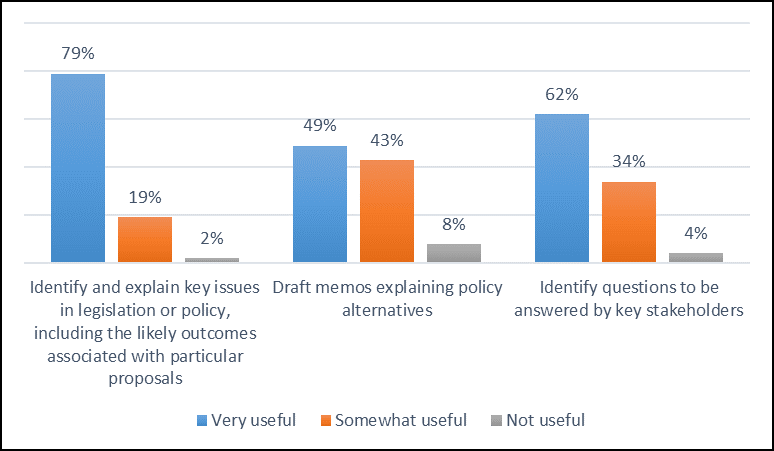Facts That Matter Blog
Facts That Matter Blog

Building a Local Talent Pipeline – Alamance County
The ability to recruit and retain a skilled workforce is vital in today’s economy. Local employers in Alamance County need to build a talent pipeline from within the local labor market. Approximately one-third of residents ages 25-64 attain a postsecondary degree. Employers and the school system recognize the need to expand the talent pipeline for manufacturing specifically. Companies need workers with more specialized skills than what is learned in high school. Human resource managers complain it’s difficult to find enough qualified applicants for vacant positions created by a tight labor market and the surge of retirements from the Baby Boomer segment of the workforce.
+ Continue Reading Article
Improving Health Access in Rural Communities – McDowell County
McDowell County connects practicing physicians with students who are patients, right at their schools. Using telemedicine connections in public schools, students can meet with physicians online for a diagnosis or consultation.
+ Continue Reading Article
Pre-K Expansion in Forsyth County
Did you know… North Carolina ranks first in Pre-K quality but 41st in access to Pre-K? About 62,000 low-income children are eligible for free NC Pre-K while only about 47% of them are served.
+ Continue Reading Article
Adverse Childhood Experiences in Cumberland County
Co-Author Hallee Haygood The Challenge W … Read more
+ Continue Reading Article
Mental Health & Incarceration – Stepping Up Initiative
When individuals with serious mental illness (SMI) are incarcerated, they tend to stay longer in jails and have higher rates of recidivism than those without a diagnosis.
+ Continue Reading Article
Strengthening Human Services through Social Capital
The Office of the Assistant Secretary for Planning and Evaluation at the United States Department of Health and Human Services, RTI International, and the ncIMPACT Initiative at the School of Government at UNC-Chapel Hill partnered together on the project, which seeks to understand how local, state, faith-based, and nonprofit human services programs and organizations can create and use social capital to increase employment, reduce poverty, and improve child and family wellbeing.
+ Continue Reading Article
Mitigating the Risk for Falling through the Cracks: Strengthening the Census Response Rate
In capturing data on everyone once every decade, the Census is a handy tool on which many of us base our research, programming, and communication. The Census has been around for 117 years, and every decade we see the stark differences in our composition from the decade before. Across many dimensions, the Census measures the pace of change for the country as a whole, each state as a whole, and any local community. In order for us to react to our changing surroundings, we must first know in what ways it is changing—this is the value of the Census.
+ Continue Reading Article
A Note to Human Services Programs: Four More Practices for Building Social Capital During COVID-19
As you read through the following additional social capital practices, remember there is no one-size-fits-all approach to helping participants build social capital in a human services program. Every program has a different context with different values and goals. You, the program managers and directors, know best the population you are trying to serve. That said, here are some questions and practices that might help you.
+ Continue Reading Article
A Note to Human Services Programs: Three Practices for Building Social Capital During COVID-19
As you read through the following social capital practices, remember there is no one-size-fits-all approach to helping participants build social capital in a human services program. Every program has a different context and different values and goals. You, the program managers and directors, know best the population you are trying to serve. That said, here are some questions and practices that might help you.
+ Continue Reading Article
A Note to Human Services Agencies: Think About What Type of Social Capital You Most Need to Build Online
As human service agencies help program participants take social capital activities online, it is important to be clear about the purpose for the social capital – what program-related purpose does it seek to serve?
+ Continue Reading ArticleSearch ncIMPACT content by county
Use the arrows below to search by county map or county list
